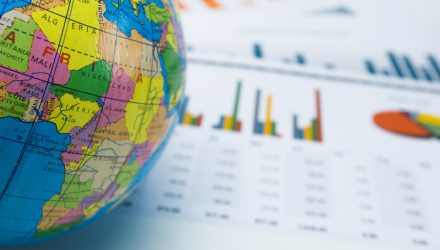Africa wasn’t immune to the effects of Covid-19 as the pandemic ravaged the economy much like the rest of the world. However, the government is taking the necessary measures in order to stabilize the country’s economy.
“The President of the African Development Bank (AfDB), Mr. Akinwunmi Adesina, said that Africa has lost a decade of economic growth due to the economic impact of the Coronavirus pandemic,” a Nairametrics article said. “He also noted the multilateral bank has launched programs to deal with the economic downturn.”
Many central banks have taken stimulus measures to help re-inject life back into the economy. Africa has been no different.
“Now we must help Africa to build back, boldly, but smartly, paying greater attention to quality growth: health, climate, and the environment,” said Adesina. “The Bank launched a $10 billion COVID-19 Response Facility to support African countries. We launched a $3 billion social bond on the global market – the largest US dollar-denominated social bond ever in world history.”
“The past several months no doubt have been challenging for the Bank. Yet, we pulled together. I would like to sincerely thank you all, our esteemed Governors, under the excellent leadership and wisdom of the Chairperson, Minister Niale Kaba, for joining hands to steady the Bank,” he added.
Africa ETFs to Consider
Exchange-traded fund (ETF) investors looking to take advantage of a rebound in Africa can look at the VanEck Vectors Africa Index ETF (AFK). AFK seeks to replicate as closely as possible, before fees and expenses, the price and yield performance of the MVIS® GDP Africa Index.
The fund normally invests at least 80% of its total assets in securities that comprise the fund’s benchmark index. The index includes local listings of companies that are incorporated in Africa and listings of companies incorporated outside of Africa but that have at least 50% of their revenues/related assets in Africa.
Another fund to consider is the iShares MSCI South Africa ETF (EZA). EZA seeks to track the investment results of the MSCI South Africa 25/50 Index.
The fund normally invests at least 95% of its total assets in the securities of its underlying index and in depositary receipts representing securities in its underlying index. The underlying index uses a capping methodology to limit the weight of any single issuer to a maximum of 25% of the underlying index. The underlying index will include large- and mid-capitalization companies and may change over time.
For more market trends, visit ETFTrends.com.








